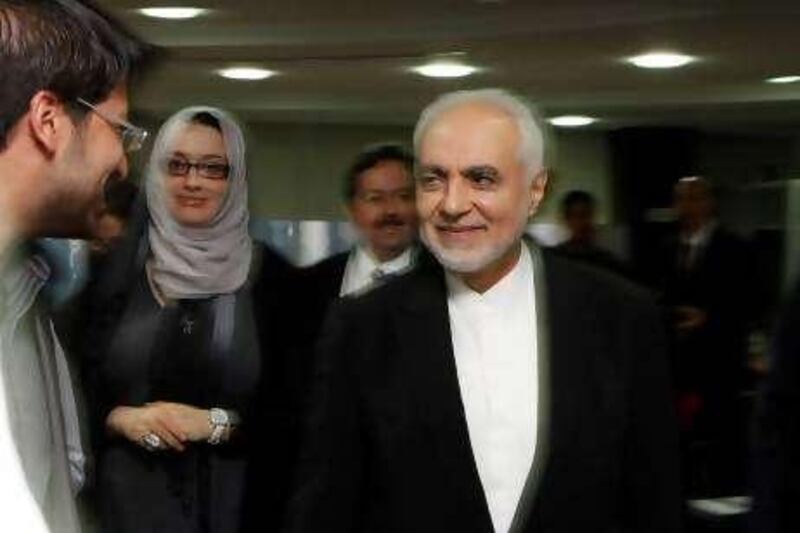DUBAI // The imam behind the project to build an Islamic centre near the site of the 9/11 attacks said last night the dispute had moved beyond a property issue and had become about Islam in America. Imam Feisal Abdul Rauf said Muslim leaders had to press for multiculturalism, but also be politically savvy and sensitive.
He reiterated his statement in an interview this week with The National, claiming that the debate over the project had become politicised. "The story has expanded far beyond a piece of real estate, it has expanded to the issues of Islam in America and what it means for us," he said. "The scope of the discourse has expanded rapidly in a season which is also politicised." "We have to be careful ... but I can assure you we will do all we can ... for a course of increased harmony, peace and well-being in our city and country," he said.
Imam Feisal was speaking at a forum for the Dubai School of Government yesterday. He is on a State Department sponsored outreach tour to the Middle East to talk about the relationship between Islam and the West and religion in America. "It is important to us to shift the discourse from the discourse of identity politics. We have to elevate the discourse because there is far more that bonds us," said Imam Feisal. "The battlefront we have today is not between Muslims and non-Muslims," he added. "It is between moderates ... against extremists and radicals of all the faith traditions."
When asked about his reaction to the protests over the Park51 project in New York, he said: "Americans are by and large a tolerant people. If they are informed properly what the actual facts of the situation are, they will always make the right decision." Imam Feisal said the tradition of multiculturalism has been absent recently in the Muslim world when questioned about whether the location of the project was too sensitive and whether it would harm or enrich inter-religious dialogue.
"If you look back at Islamic history until Ottoman times, our societies were multicultural, multi-lingual, multi-religious, multi-denominational. We have lost that and it is important for us to recreate that in our societies," he said. The US owed its success to its pluralism, he said, adding that in that respect it was similar to Dubai. "Our small societies are increasingly globalised, we have to face that reality. We have no time. We don't have the leisure, the luxury of taking our time," he said.
"Of course we have to be savvy and politically sensitive, but we have to do what is right and bring our people along, and that is what leadership is all about." He drew parallels between Islam and the US declaration of independence, saying the concept of inalienable rights granted to people by God and the equality of all people was "parallel to what Islamic jurists have written". "The very definition of the American existential viewpoint is consistent with the very thinking of Muslim scholars," he said.
Religious freedom, a central aspect of the "American viewpoint", was "consistent with the Quranic value that there will be no coercion in matters of faith and religion," he said. Being an American had enriched his experience as a Muslim, he said. Growing up in a society with many Muslims meant "you practise your faith because it is a social norm," he said. "The more something is a choice, the more it is yours. The less something is a choice, the less it is yours. It is forced upon you."
To solve misconceptions of Islam in the US, Muslims had to act as instructed by their faith, he said.
There is need for greater interfaith dialogue as well, he said, adding that what is needed is the political will as well as the resources to carry out such initiatives.
kshaheen@thenational.ae







